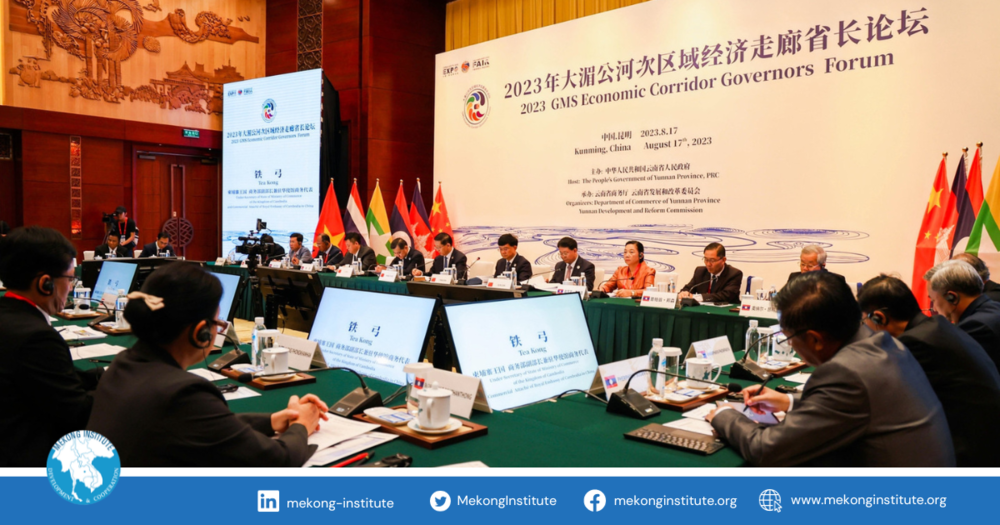The 2023 GMS Economic Corridor Governors Forum, with the theme Cooperate for Agricultural Trade Facilitation and Seek New Highlights of Subregional Cooperation hosted by People’s Government of Yunnan Province, P. R. China, took center stage in Kunming, Yunnan, P. R. China on August 17, 2023.
MI’s Executive Director, Mr. Suriyan Vichitlekarn, graced the event and delivered a speech, highlighting the strategic importance of the GMS as an economic link between ASEAN, China, and the broader Asian region. He drew specific attention to the pivotal role of agricultural trade in achieving the GMS’ long-term vision of becoming a prosperous, interconnected, and sustainable region, aligned with the Lancang Mekong Cooperation (LMC) objectives.
“If we compare GMS to a human body, economic corridors are our main bloodlines. The GMS cities are important organs. Agriculture and its trading across GMS countries could be considered the red blood cells. Ensuring the functionality of these systems will contribute to a healthy body and its well-being,” said Mr. Suriyan as he described the GMS and the role of agricultural trade facilitation in its sustainable growth and prosperity.
Among the highlights of Mr. Suriyan’s speech is the two-pronged approach to boosting economic growth and development through agricultural trade facilitation. First is enhancing cross-border trading systems by simplifying processes, embracing automation, investing in infrastructure, and strengthening food safety and quality standards. The second is fostering public-private partnerships and investments to boost agricultural productivity and logistics. He emphasized the need for synergy between the GMS program and LMC initiatives, with a focus on capacity building and enhanced cooperation among key GMS cities situated along crucial economic corridors.
“Mekong Institute subscribes to the importance and benefits of agricultural trade facilitation. Building synergies and complementarity of the two prominent cooperation frameworks, namely the GMS Program and LMC, will ensure greater impacts and benefits to member countries. Technical assistance and capacity development to improve cross-border trading systems as well as public-private partnerships and investment will contribute to the advancement and effectiveness of agricultural trade facilitation,” said Mr. Suriyan.
Concluding his remarks, he assured that MI is committed to championing greater synergies and enhancing agricultural trade facilitation toward a prosperous, connected, and sustainable GMS.
The forum was part of the 7th China-South Asia Expo. From 2015 to 2022, Yunnan has invited to the forum a total of 1837 stakeholders including 133 Ministers or Governors from GMS countries and 44 representatives from international organizations.








